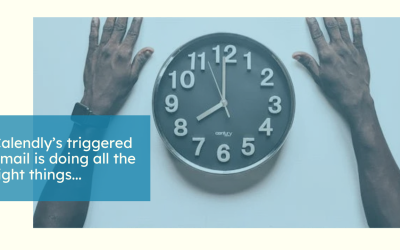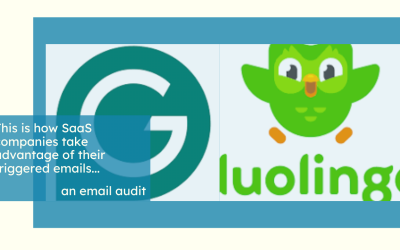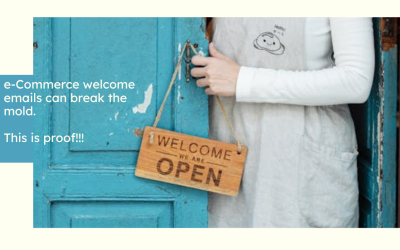Are you afraid to name your competition?
Or do you believe you are so better than them that there’s absolutely no need to name them?
If your answer is YES, then I’d ask you to consider DuckDuckGo’s marketing techniques.
One of the cardinal laws when it comes to marketing and copywriting is to not openly name the competition or attack them.
But here’s the thing:
Your users and buyers know the competition. They compare you to the competition when you are not there. They say Product A is better than Product B or I prefer Product C because of so, so and so.
Your users aren’t shy. So maybe you shouldn’t be shying away from it.
Maybe taking the bull by its horns and name-shaming your competition is a good way to improve your marketing and get more users.

I wrote this article 3 years ago.
And I have grown to see more clearly why it isn’t always bad to name your competition.
We’re told to list all the great features and benefits of the products we write about, find the unique selling proposition, and show how we are better than these nameless others.
But what if you’re so frigging sure of your USP and know that none of your supposed competitors are doing what you do or doing it like you do, yet your prospects keep equating you to these competitors. Don’t you think it’s worth a try to show how you’re better and to show who exactly you’re better than?
Instead of using the passive-aggressive “those other brands” technique?
DuckDuckGo attacks the competition
One brand that doesn’t keep its competitor’s name out of its mouth is DuckDuckGo.

In fact, it attacks the competition with glee. In a world where there are a thousand search engines, with Google and Google Chrome being the most prominent ones, DuckDuckGo has managed to carve out a space in the digital sphere where it thrives.
If you’re patient enough to search its Twitter page for ‘Chrome,’ ‘Google,’ and ‘Facebook,’ you’ll come across tweets made as far back as 2015 criticizing the privacy policies of these companies.
The first DuckDuckGo Twitter ad I saw categorically stated that I shouldn’t trust Google Chrome when it said it wasn’t stealing my data while I browsed in incognito mode because it was, in fact, stealing my data.
So I went to their page to do a little browsing.



A typical tweet goes something like, “Do you know Facebook/Meta is a liar and Google Chrome is the devil? We don’t harvest your data the way they do, in fact, it’s like you were never there when you browse with us.”
Well, users seem to like this because we love the illusion of privacy and instead of using the incognito mode on Chrome, I’d rather use DuckDuckGo. The fact that I can burn the webpage after searching or browsing gives me extra confidence.
This method doesn’t work for me alone.
The numbers are in and this lesser-evil marketing style has seen Duck Duck Go’s search market share increase to 2.6 percent in 2020 from 1.25 percent in 2019. The company has over 80 million users and was worth $901 million in 2021.
So, in essence, their marketing style is:
- Put down others like us who don’t value user’s privacy.
- Present ourselves as the Knight who saves the user’s day!
Disco calls out the competition
Another brand that uses this method is Disco Skincare for Men. It isn’t as bold, but it disses any other skin product that says it’s unisex.
It focuses on men’s skin.
In one of its emails, it goes after skincare brands, encouraging the user to go to malls and check out the ingredients in the ‘so-called unisex’ skin products and compare them with regular ones and other women’s skin products.


Its argument is that only the packaging is different and those unisex products do nothing for the men who use them; but Disco, on the other hand, is up to the task.
Pepsi vs Coca-Cola
Note of warning, though — this approach won’t always work.
Pepsi tried it with Coca-Cola Cola and it wasn’t a good look for the brand because of the way the latter responded.

When I made this post on LinkedIn, someone in my network said that we could not confirm the success or failure of Pepsi’s dissing Coca-Cola until the numbers showed themselves.
But it was quite embarrassing for Pepsi when Coca-Cola responded.
Conclusion
One reason it works so well for DuckDuckGo is that it’s the only app that respects users’ privacy when they browse the internet.
And in a world where information keeps getting stolen by Big Corp and they only care about the money, this approach is a big deal. The same goes for Disco, only this time it’s skincare.
For this approach to work for your brand, you need a value proposition that you know your competition doesn’t have or lying about. This is, in itself, objection handling. Because your users are contemplating why they need to switch at all, this approach gives them that golden reason.
Need help with your email marketing? Let’s talk.





0 Comments